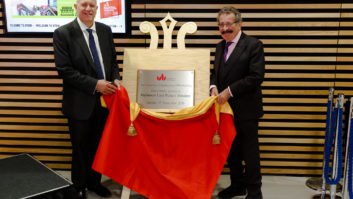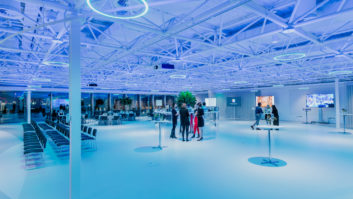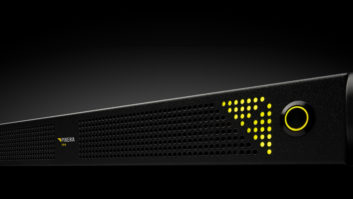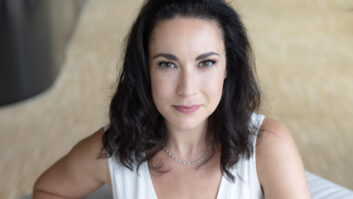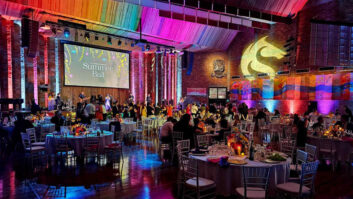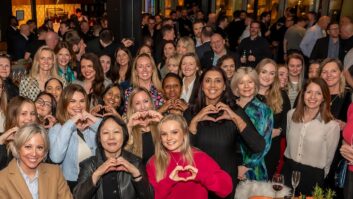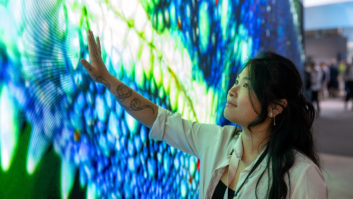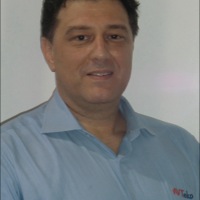
The managing director of this Dubai-based integrator talks to Yolanda Ayora about how to bring something unique to projects, and how his business has changed since the financial crisis took hold
Born in Yugoslavia, Zoran Dragacevic first came to Dubai in 1979 at the age of 14. After attending university in his home country, he worked in Germany for Nixdorf computers, He returned to Dubai in 1991 when the war began in Yugoslavia, and set up integrator AV Telco a few years later. Today the company has around 50 employees.
How long has AV Telco been in existence? Since June 1998. We opened as an IT/videoconferencing specialist. Videoconferencing was big in those days – huge expensive $50,000 systems from companies like Sony, PictureTel and VTEL. One of our biggest jobs was at the Burj-Al-Arab hotel. We did a lot of IT jobs, and suddenly people started asking for projectors and for voice amplification. So we moved into that, but I didn’t see myself competing with key players who were doing big auditoriums and disco clubs – I wanted to stay on the corporate side.
I had a handful of clients who wanted me to automate their museums, or make their auditoriums interactive for talking to students. We were always into making things – we’re a small gadget factory. I’ve got a couple of guys who’ve been with us nearly a decade now – they started as TV technicians and have grown to being project leaders doing complex stuff. That’s how we grew.
Do you still make and install your own products? We do – and we try to bring our own flavours to projects. My strength is in understanding our clients. I don’t try to sell them a projector or something; I try to see where I can make something new for them.
For example, we did one job during the big boom for a bank in Abu Dhabi that wanted ‘something special’ for a queuing system. How do you make queuing special? So we sat down and broke our heads – and we thought, what about if we make you small continuation LEDs, and cut them into your floor and put them in on three sides?
I have a friend in Serbia – my age – who has made PCB boards since he was 14, and has built up his business making timing/scoreboards for basketball courts. I drew him three branches of LEDs, 25m each, and I explained that when you pressed a button some text would come up – “follow me for corporate loans” or “have a shiny day” – something to break the monotony of a bank. So we cut into the floor, we ordered the boards from Taiwan, we ordered the LEDs, and my guys were there manufacturing something new, which was very cool.
One thing I decided that is very important – I never wanted to subcontract. From the early days, I looked for technicians with TV experience, because I find those guys are the funkiest guys – they know how to repair anything. I don’t want cable pullers, I don’t want mounters, I want somebody who knows how to do everything. Because when my guys go to site, there are multiple technologies, and you don’t want to call the whole team out there.
What’s the most technologically advanced project you’ve worked on recently? That would be the sales showroom for properties within the Palm development, which we worked on before the financial crisis broke out. There was a lot of complexity to it.
In the reception area, we created mirrors and put in loads of LED signs so that they could welcome visitors from all over the world in their own language – and put in lots of 10in and 12in monitors to give a glimpse of what they’re going to experience, just for three seconds.
Then you come into the famous ‘blue room.’ It’s a big, 100sqm room – all the doors open automatically, and there’s an AMX touchpanel controlling everything, including the presentation. There were 18 Rosco lighting fixtures giving the room a blue ambience. It had nine Christie projectors, a 21m, curved, seamless screen, Watchout software, a 9.2 sound system, an automation system for the doors, it needed special relays – it was a nightmare to bring it all together.
Unfortunately it was never finished because the crisis happened and the sales activity stopped. But it was a dream job to do, and maybe it will start up again.
Do you have a set phrase to describe what your company does? I like to use what one of my competitors says: “here comes the SWAT team!” We are not generals, we are little lieutenants. When I was in the army in Yugoslavia for two years – during peacetime, fortunately – I learned about the difference between SWAT and the rest: the SWAT team guys do all the dirty jobs! And they really do it – they have the motivation and they have something in themselves. When I hire people, I usually see within a couple of months if they are right for us or not.
How has your business changed since the financial crisis? We are still into AV but the same clients want security solutions – so we have our own line of security products. We have lighting systems – that’s my wife’s company, Green Wizardry – and we’ve synergised these companies into a company that can do all these things: interior fit-outs for furniture and lights; audio-video automation and digital signage; IT networking and telecoms, which is the backbone for everything these days; and security solutions. So we’re still in a niche – I don’t want to do very big jobs.
There is diversification everywhere: clients aren’t placing the big AV orders any more. If you talk to the boss of any AV company, you find he’s doing something else. There’s one AV company who had a client who didn’t pay them for some equipment – suddenly they’re a rental company!
What would you say is the most important thing you’ve learned in your years at AV Telco? There are so many things I learned… I think patience, in this market, is something that pays off. Also, don’t overexcite the client – if you get them overexcited, then when they see how much it’s going to cost, that’s when they go and talk to someone else.
Is there a dream job you hope that someone will ask you to do? I did a job a couple of years ago in the auditorium of a rehabilitation system for children, but I wanted to offer them more. I wanted to bring technology to children who are ill – either physically or mentally. I’ve met a couple of people in Europe who have done some work in this area – giving children a pen to let them create pictures on a big screen. I want to give physically challenged people the opportunity to get ideas out of their heads – that would be cool to do.
